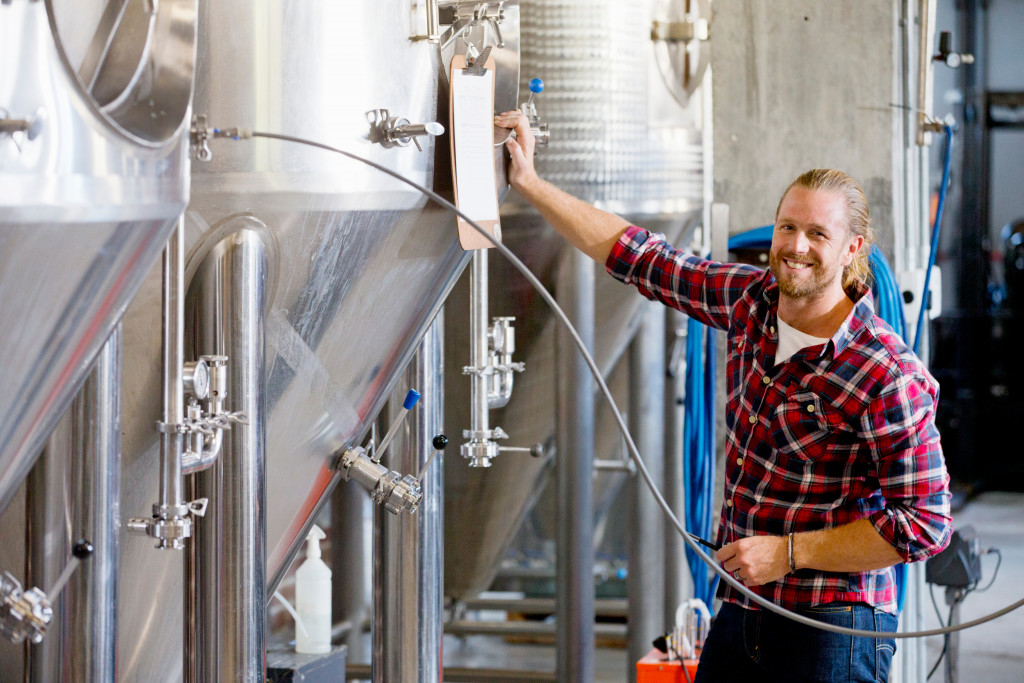- Maintenance prolongs the life of equipment, ensuring safety and hygiene and enhancing efficiency and production.
- Regulatory compliance is also important in this industry to safeguard consumer health.
- Tips for proper equipment maintenance include cleansing and sanitizing and regular inspections.
- Following the instruction manual and creating a maintenance schedule is also important.
- Staff training is necessary to ensure proper equipment operation, handling, and safety guidelines.
When it comes to running any business, being proactive with equipment maintenance is essential to prevent preventable losses. In particular, comprehensive equipment maintenance is crucial for food and beverage businesses.
In these industries, it is crucial to maintain a hygienic and efficient workspace, and proper equipment maintenance can help ensure cleanliness, prolong equipment lifespan and guarantee the smooth running of business operations.
Therefore, this blog post will discuss the importance of equipment maintenance for food and beverage businesses and why it should be prioritized.
Prolongs Equipment Life Span
Undoubtedly, business equipment is a significant investment, especially for food and beverage businesses, and ensuring they last as long as possible is essential. Regular maintenance will prevent equipment from decaying faster than it should, elongate its life, and prevent premature breakdowns, therefore saving the cost and inconvenience of replacing broken equipment.
Additionally, regular maintenance is a preventive measure that helps identify potential issues early on to prevent them from escalating into costly repairs or replacements.
Ensures Safety and Hygiene

For food and beverage businesses, maintaining food safety and hygiene is paramount. Inadvertently, equipment and tools used in these industries pose a high risk of cross-contamination and harboring harmful bacteria and viruses if they are not adequately cleaned after each use.
Hence, routine equipment maintenance should include proper cleaning, sanitation, and sterilization measures to prevent harmful substances’ growth and promote a safe and healthy environment for the workers and consumers.
Enhances Efficiency and Production
Maintenance also boosts the efficiency and productivity of food and beverage businesses. When equipment is adequately maintained, it works optimally and produces consistent output, thus reducing downtime and production bottlenecks and minimizing operational costs.
Additionally, ensuring that equipment is adequately maintained promotes operator confidence, increasing efficiency, productivity, and an overall better return on investment.
Regulatory Compliance
In the food and beverage industry, there are specific safety standards and regulations that businesses must adhere to safeguard consumer health. Failing to comply with these standards could lead to legal enforcement action, fines, or penalties.
An essential aspect of these standards is the adequate maintenance and cleaning of equipment and tools used in production. By implementing a comprehensive equipment maintenance plan, businesses can stay compliant, avoid legal action, and keep their consumers safe.
Tips for Maintaining Equipment
So, how do you ensure your business’s equipment is maintained correctly? Here are some tips to help you out:
Cleaning and Sanitizing
Keeping the equipment clean and sanitized is the most crucial part of its maintenance. Always clean the equipment thoroughly after each use to remove any stuck-on food particles and prevent bacteria growth. Also, sanitize everything regularly to reduce the possibility of contamination. You can use hot water, vinegar, or other sanitation solutions to keep the equipment germ-free.
Regular Inspections
Regular equipment inspections can help identify potential problems before they escalate into more significant issues. One of the best ways to quickly inspect equipment is by identifying the frequency of vibration and temperature changes.
For this, you need to use a wireless remote vibration sensor to monitor the vibrations and detect any irregularities. This tool works by measuring the amplitude of vibration and the frequency, enabling you to prevent unexpected breakdowns and reduce unnecessary losses.
Follow the Manual

Every equipment model has an instruction manual that provides essential information regarding maintenance, safety guidelines, and recommended usage. Read and follow the manual thoroughly to keep the equipment in good condition and avoid any damage caused by improper use.
Plan for Maintenance
Create a schedule for equipment maintenance and record keeping that includes cleaning, inspecting, and repairing the equipment. Create a checklist that outlines each assignment and the timelines, then assign responsibilities to staff. Regular maintenance activities can help increase the equipment’s lifespan, reduce failures, and improve overall performance.
Staff Training
Lastly, ensure that every staff member knows the importance of equipment maintenance and is trained on how to utilize the equipment correctly. Create a training program that familiarizes staff with equipment operation, handling, and safety guidelines. Regularly update the training program to incorporate new equipment or technological advancements that may impact utilization or maintenance.
Final Thoughts
Proper equipment maintenance directly affects a food and beverage business’s success, productivity, and profitability. Apart from cost savings, maintenance also ensures safety, minimizes legal risks, optimizes production, and guarantees customer satisfaction. Therefore, businesses must implement a comprehensive and proactive equipment maintenance routine to prevent preventable losses that could negatively affect the business.
